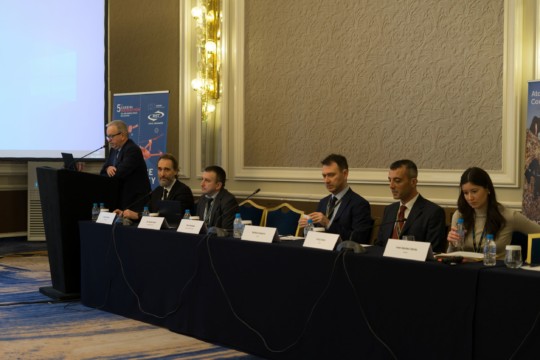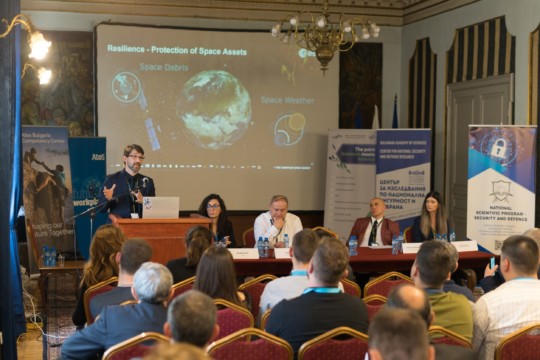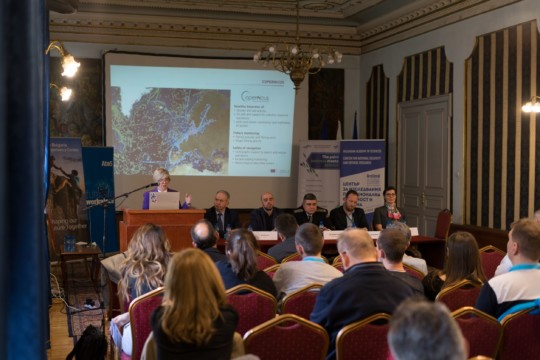Space for Defence and Security: Balkans and Black Sea perspectives II
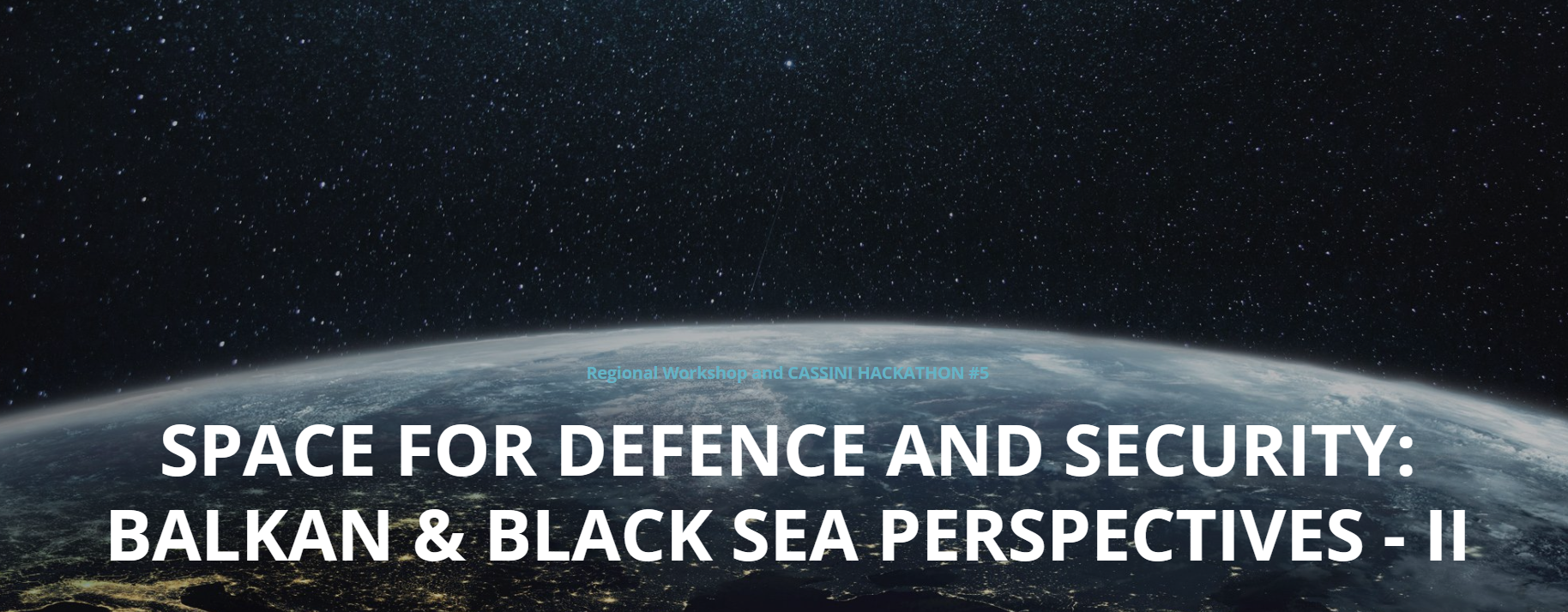
On the 24th of March, Eurisy supported the National Security and Defence Research Center at the Bulgarian Academy of Sciences to organise, in cooperation with the Ministry of Defence, the conference Space for Defence and Security: Balkans and Black Sea perspectives II, in Sofia.
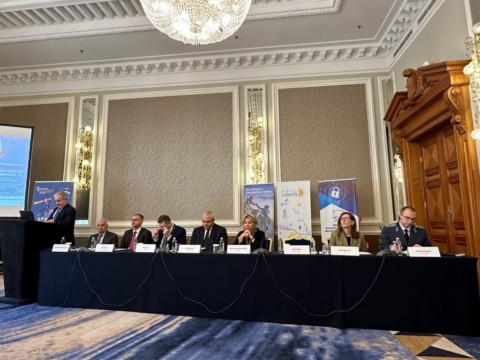
With this event, the organisers aimed at highlighting the tight connection linking space and security, as well as at presenting the benefits deriving from a stronger and more coordinated cooperation between institutional and private actors. A set of operational space-enabled solutions has been illustrated to also provide some food for thought for the participants to the 5th CASSINI Hackathon taking place in Bulgaria, starting immediately after the Conference and running for the whole weekend. The Hackathon challenged participants to come up with solutions to enable cross-terrain mobility, to make the seas more secure, and to protect our critical infrastructure.
In the current context of geopolitical instability that the region is experiencing, and in light of the recent publication of the European Space Strategy for Security and Defence, the conference proved to be extremely timely. The Strategy formally recognises space as a strategic domain and, building on a common understanding and a shared definition of threats, it proposes actions to strengthen the resilience and protection of space systems. The Strategy also urges to increase the use of space for security and defence on Earth, committing EU Institutions and its members States to harness synergies and nurture cross-fertilisation among space and security, especially in research and development activities.
“Space should become once again one of Bulgaria’s priorities” said Mr Iliev, Director of the Center for National Security and Defence Research (CNSDR) at the Bulgarian Academy of Sciences (BAS), opening the conference. Iliev highlighted how Bulgarian citizens have always been very passionate about space. According to the Support for Space Activities in Europe Report, Bulgaria is ranking third ont he general public support to space research. Bulgaria is even reaching the top position on the perceived need to allocate appropriate funding for space research, Iliev added.
In the same direction goes the statement of Mr Ivan Demerdzhiev, Acting Minister for Internal Affairs, who retraced the long history of the country in space culminating with the flights of two Bulgarian cosmonauts (Georgi Ivanov and Aleksandr Aleksandrov) in 1979 and 1988. Mr Demerdzhiev draw the attention of the public towards future milestones, such as the enlargement of Bulgarian’s facilities and capabilities, with special reference to the Center for Aerospace Observations within the Ministry of Interior. The Minister reported that €56M have been allocated to this project, that should become the key enabling factor to open ESA’s membership doors to Bulgaria.
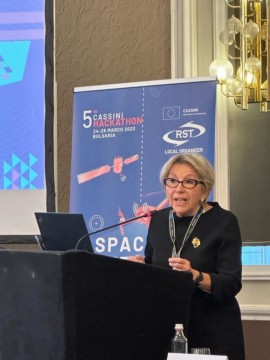
This message was reaffirmed by Mr Stefan Savov, Deputy Minister of Innovation and Growth, who confirmed that Bulgaria is steadily increasing its contribution to ESA and is striving to meet the requirements to soon become a new associate member. Mr Savov pointed out that a solid space sector is a crucial driver for technology development, innovation and breakthroughs also in other sectors, and that Bulgaria needs to follow this trend. Indeed, the agreement signed to made Bulgaria a new ESA cooperating state needs in fact to be considered as the first step of a roadmap that will lead the country to increase their efforts in the field of innovation and research, to eventually improve the quality of life of its citizens.
Dominique Tilmans, President of Eurisy and honorary Senator of Belgium, reminded the audience of how the evolution of threats including cybersecurity attacks as well as climate change effects, made security and defence a top priority of the political agenda of European countries. Space technology can be of help to support first-aid field units, help in collecting intelligence, and improve border control. Satellite technology should no longer be regarded as innovation, but rather as practice and it should be considered as an integral part of political decision-making and risk mitigation.
In this context, the European Space Agency aims to position itself as the driving force for research and development of cutting-edge integrated applications, using all European expertise to better respond to user needs. Mr Pascal Legai, Senior Security Advisor to ESA’s Director General, illustrated the Civil Security from Space Programme proposed to the ESA Council at Ministerial level back in November 2022. The new programme will support initiatives proposed by industry in partnership with civil security actors from R&D until demonstration and validation. Interested stakeholders are invited to get in contact with ESA to engage in the process.
Building on the topics proposed for the Cassini Hackathon, three additional technical sessions saw the participation of high-level experts from the European Commission, SatCen, EUSPA, and of local entrepreneurs and researchers to discuss the latest technological developments and operational solutions.
